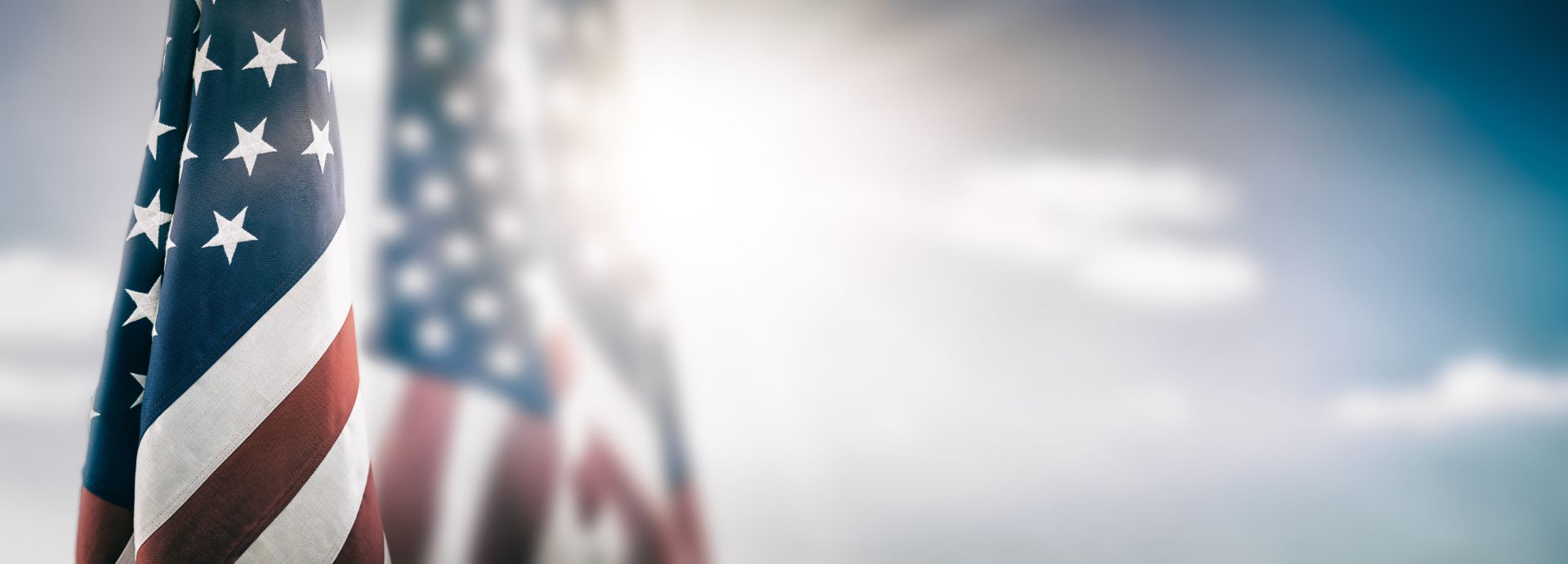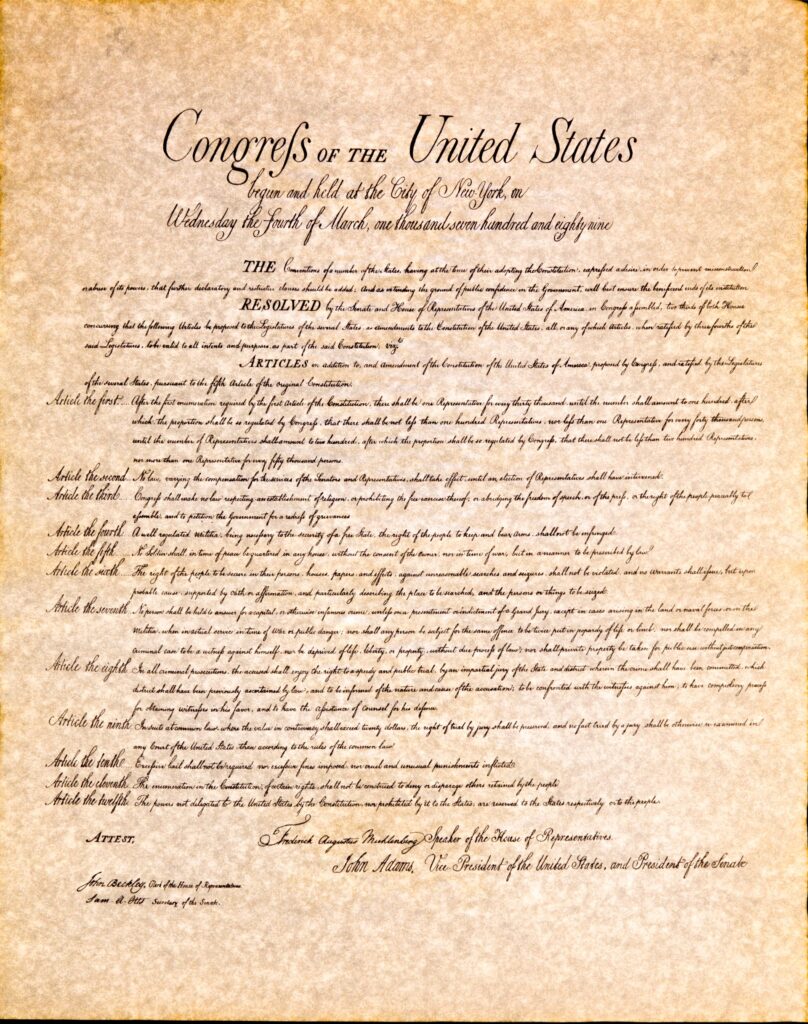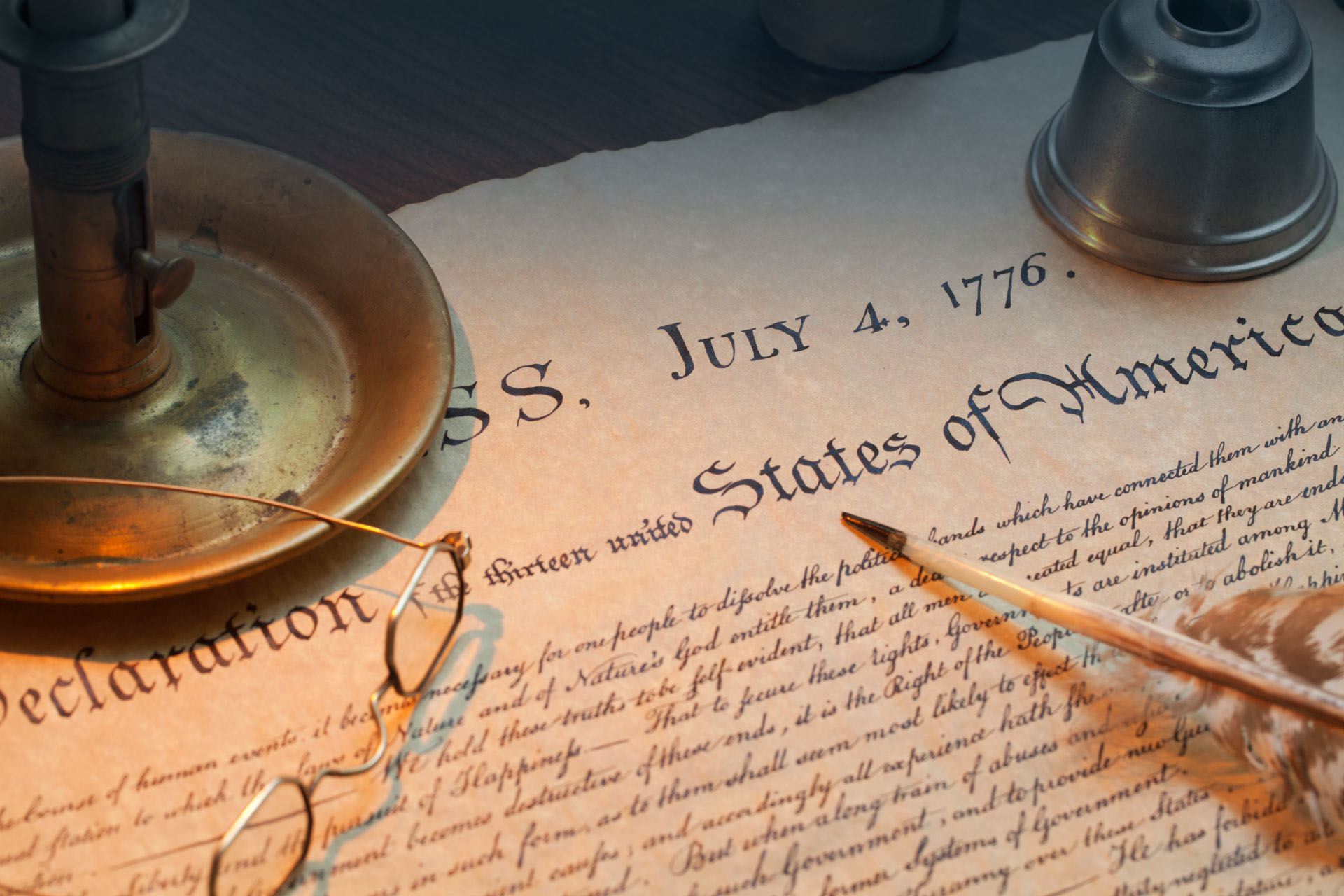

On Religion
From George Washington to the Hebrew Congregation in Newport, Rhode Island, 18 August 1790
Gentlemen,
While I receive, with much satisfaction, your Address replete with expressions of affection and esteem; I rejoice in the opportunity of assuring you, that I shall always retain a grateful remembrance of the cordial welcome I experienced in my visit to Newport, from all classes of Citizens.
The reflection on the days of difficulty and danger which are past is rendered the more sweet, from a consciousness that they are succeeded by days of uncommon prosperity and security. If we have wisdom to make the best use of the advantages with which we are now favored, we cannot fail, under the just administration of a good Government, to become a great and a happy people.
The Citizens of the United States of America have a right to applaud themselves for having given to mankind examples of an enlarged and liberal policy: a policy worthy of imitation. All possess alike liberty of conscience and immunities of citizenship It is now no more that toleration is spoken of, as if it was by the indulgence of one class of people, that another enjoyed the exercise of their inherent natural rights. For happily the Government of the United States, which gives to bigotry no sanction, to persecution no assistance requires only that they who live under its protection should demean themselves as good citizens, in giving it on all occasions their effectual support.
It would be inconsistent with the frankness of my character not to avow that I am pleased with your favorable opinion of my Administration, and fervent wishes for my felicity. May the Children of the Stock of Abraham, who dwell in this land, continue to merit and enjoy the good will of the other Inhabitants; while every one shall sit in safety under his own vine and figtree, and there shall be none to make him afraid. May the father of all mercies scatter light and not darkness in our paths, and make us all in our several vocations useful here, and in his own due time and way everlastingly happy.

Religious Freedom and Tolerance
President George Washington strongly valued religious freedom, a principle he shared with many of his contemporaries. Before the Revolution, numerous religious groups faced persecution in both Europe and the American colonies. After his inauguration, members of these communities wrote to Washington seeking reassurance about how his government would treat them. In his responses, he emphasized that Americans owed their religious beliefs solely to God. However, he also made it clear that while faith was a personal matter, all citizens had a civic duty to their country—to uphold the laws, contribute to society, and work toward the common good, regardless of their religious convictions.
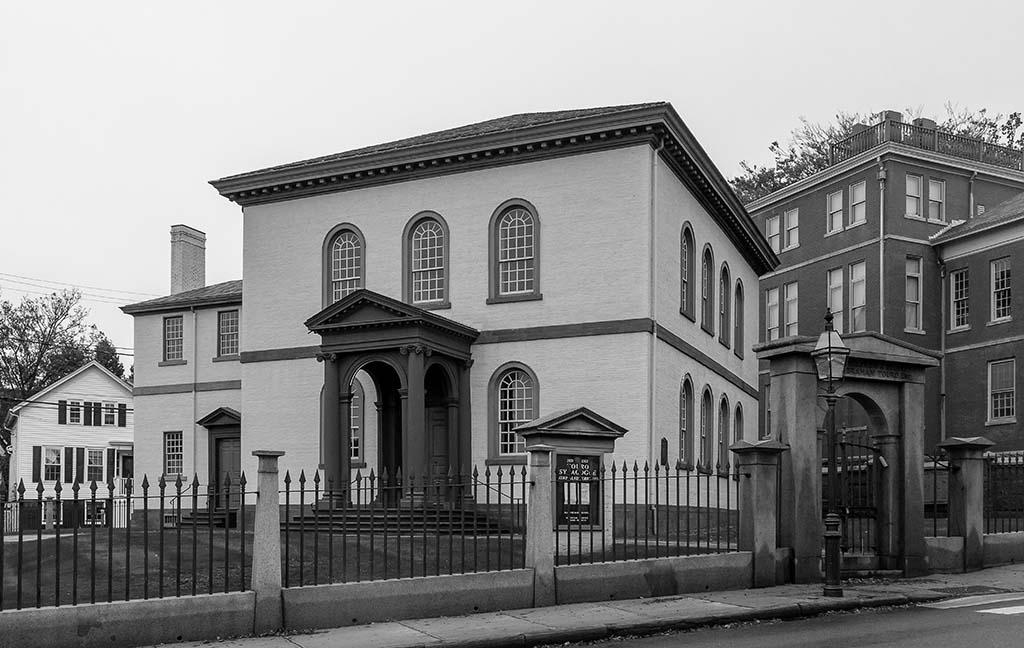
—The Touro Synagogue or Congregation Jeshuat Israel
Built in 1763, Newport, Rhode Island.
Washington’s letter to the congregation in Newport, Rhode Island, is one of many surviving correspondences he exchanged with religious groups seeking to understand the new nation’s character. These surviving letters, each personally penned by Washington, reveal his efforts to define the nation’s principles and reassure its citizens.
From George Washington to the Bishops of the Methodist Episcopal Church, May 1789
“…the sincerity of my desires to contribute whatever may be in my power towards the preservation of the civil and religious liberties of the American People.”
From George Washington to Roman Catholics in America, March 1790
“… all those who conduct themselves as worthy members of the Community are equally entitled to the protection of civil Government.”
“Congress shall make no law respecting an establishment of religion, or prohibiting the free exercise thereof; or abridging the freedom of speech, or of the press; or the right of the people peaceably to assemble, and to petition the Government for a redress of grievances.”
—Amendment I
The Bill of Rights
The First 10 Amendments to the U.S. Constitution
Ratified December 15, 1791
Religious Freedom and Tolerance
The Bill of Rights, the first ten amendments to the U.S. Constitution, protects individual freedoms, including religious liberty. The First Amendment safeguards this right through two key provisions: the Establishment Clause and the Free Exercise Clause. These clauses ensure that the government neither establishes a religion nor interferes with personal religious practices, maintaining a balance between faith and the rule of law. When conflicts arise between these principles, the federal courts—ultimately the Supreme Court—resolve such disputes.
The Establishment Clause
“Congress shall make no law respecting an establishment of religion…”
This clause prohibits the government from establishing a state religion and is often interpreted to mean that the Constitution requires the separation of church and state
The Free Exercise Clause
“…or prohibiting the free exercise thereof.”
This clause protects citizens’ right to practice their religion freely,
provided the practice does not violate public safety or other laws.
Federal Laws Protecting Religious Freedom
Religious Freedom Restoration Act (RFRA) – 1993
Legal Citation: 42 U.S.C. § 2000bb-1
Requires the government to prove a “compelling interest” before restricting religious practices.
Example: If a law burdens religious practice, the government must show it’s necessary for public safety or another critical reason.
Religious Land Use and Institutionalized Persons Act (RLUIPA) – 2000
Legal Citation: 42 U.S.C. § 2000cc
Prevents the government from unfairly restricting religious institutions through zoning laws (e.g., blocking churches, mosques, or synagogues).
Protects religious rights for prisoners and institutionalized persons (e.g., allowing them to follow religious dietary restrictions).
Title VII of the Civil Rights Act (1964) – Workplace Religious Protections
Legal Citation: 42 U.S.C. § 2000e-2
Prohibits religious discrimination in employment (hiring, firing, promotions).
Employers must reasonably accommodate religious beliefs unless they cause “undue hardship.”
Faith & Freedom: America’s Promise
Throughout history, governments have utilized religion as a means of power, but the U.S. stands apart due to its Constitution, which prevents such encroachments. The Founding Fathers, many fleeing religious persecution, established a system that allowed faith to flourish without government interference.
Unlike nations where religious groups dominate lawmaking or where secularism stifles faith, the U.S. maintains a balance that lets individuals choose their level of religiousness or secularism freely.
For independent voters, this underscores that the separation of church and state protects personal freedoms, limits government power, and ensures that no single religion dictates national policy, safeguarding the right for all to live according to their beliefs.
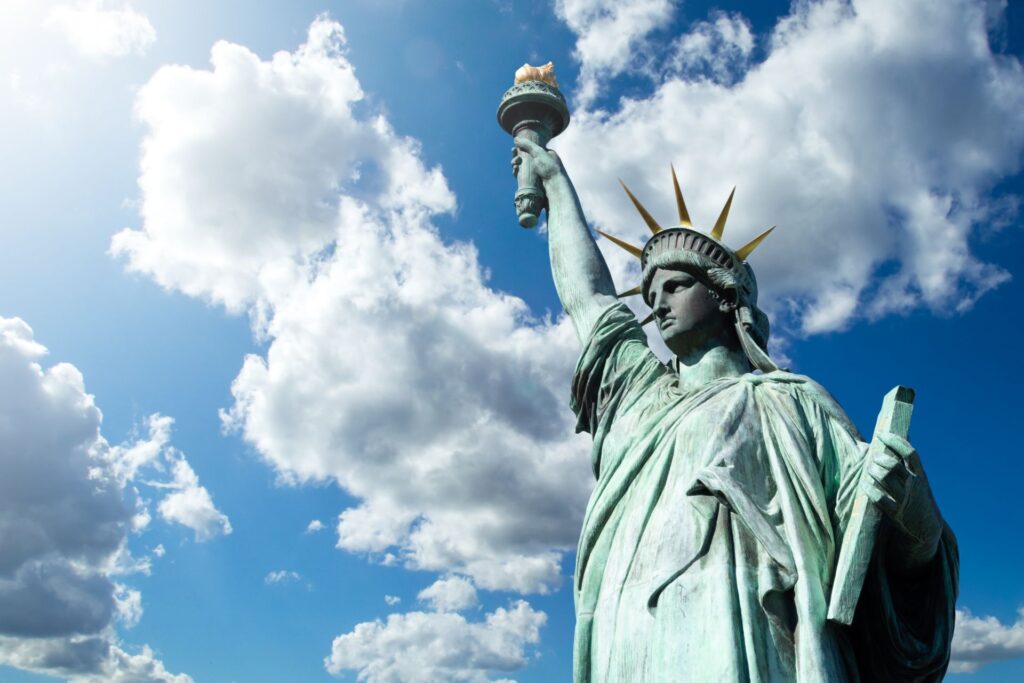
FOTOGRIN/Shutterstock.com
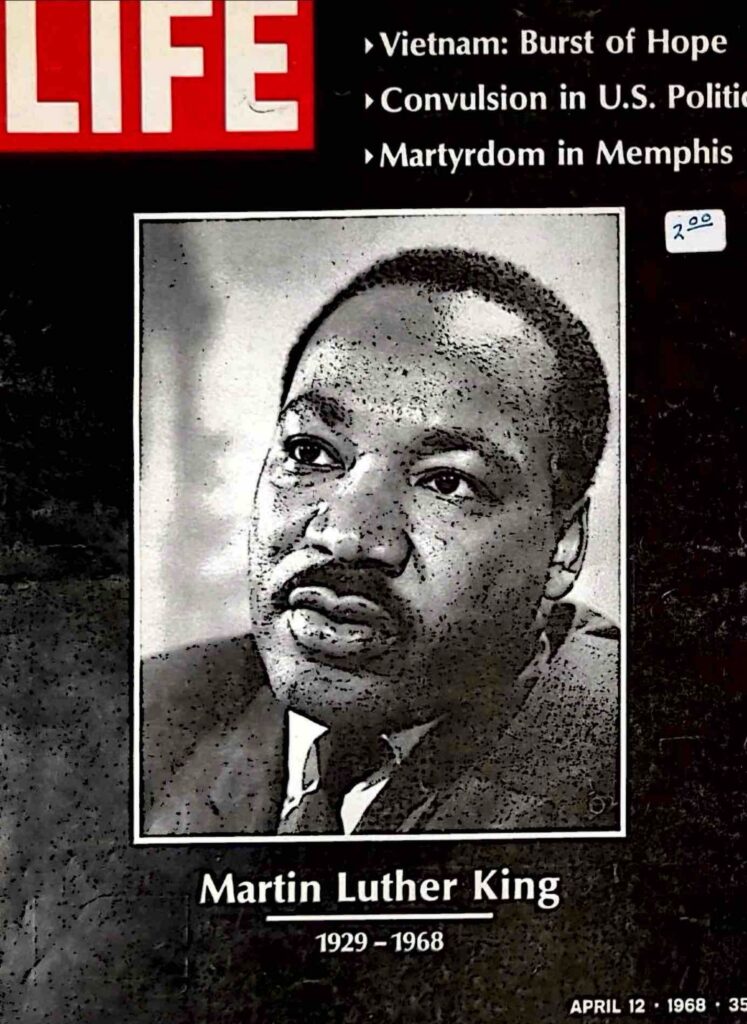
A. Marino/Shutterstock.com
Pursuit of Unity
“The church must be reminded that it is not the master or the servant of the state,
but rather the conscience of the state.”
-Dr. Martin Luther King Jr.
As a Baptist minister, King believed that faith and morality were deeply intertwined with the struggle for civil rights. King saw the First Amendment’s protections—especially freedom of religion and speech—as essential in his fight against racial injustice. He argued that religious freedom allowed moral voices to challenge oppression and that the separation of church and state ensured that faith could be a force for good without government interference or control. He often referenced Christian teachings to advocate for equality, emphasizing love, nonviolence, and justice.
PROTECTION OF THE INDIVIDUAL
“If we desire respect for the law, we must first make the law respectable.”
― US Supreme Court Justice Louis D. Brandeis
Justice Brandeis strongly supported freedom of religion as a fundamental right protected by the First Amendment. He believed that religious liberty was essential to democracy and that the government should neither promote nor interfere with religious beliefs.
While he did not author a major Supreme Court opinion solely on religious freedom, his broader views on individual liberties emphasized that freedom of religion was necessary for personal development and a safeguard against tyranny. His general philosophy aligns with his famous statement in Whitney v. California (1927):
“Those who won our independence… valued liberty both as an end and as a means. They believed liberty to be the secret of happiness and courage to be the secret of liberty.”
Brandeis’s legal philosophy helped shape later interpretations of the First Amendment, reinforcing the idea that religious freedom is best protected when the government remains neutral in matters of faith.
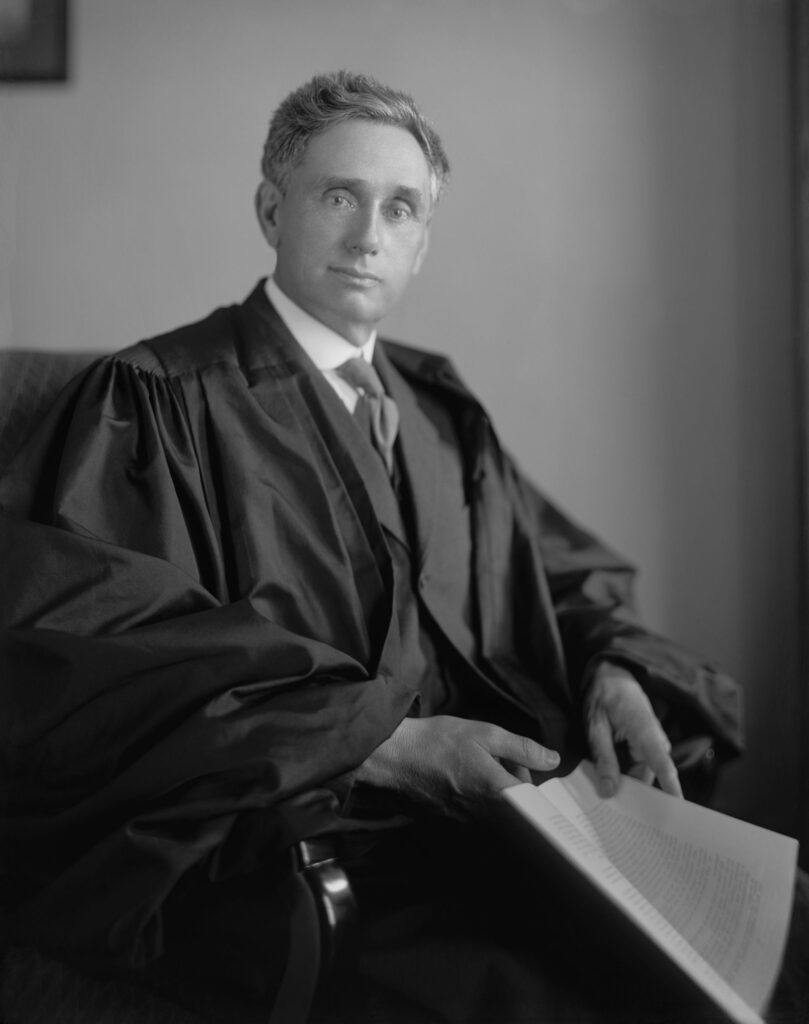
Everett Collection/Shutterstock.com
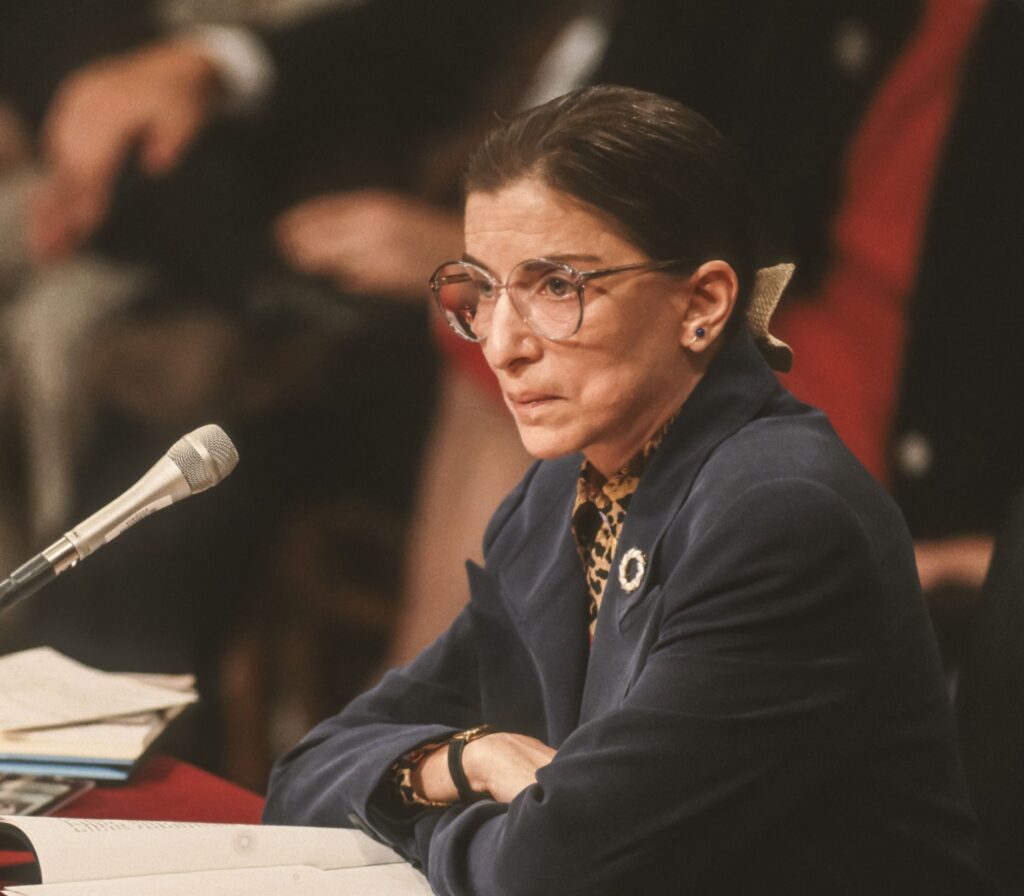
Rob Crandall/Shutterstock.com
RELIGION AND SOCIETY
“A constitution, as important as it is, will mean nothing
unless the people are yearning for liberty and freedom.”
—US Supreme Court Justice Ruth Bader Ginsburg
Justice Ruth Bader Ginsburg
strongly supported the First Amendment’s protection of religious freedom while emphasizing the importance of maintaining a clear separation between church and state. To her, the First Amendment was a shield for personal belief, not a tool to impose religious views on others. She believed public institutions should serve all Americans, regardless of faith.
Ginsburg firmly opposed using religious liberty as a justification to infringe upon the rights of others. In Burwell v. Hobby Lobby (2014), the Supreme Court ruled that privately held corporations could deny contraceptive coverage to employees based on religious objections. In her dissent, Ginsburg warned that granting broad religious exemptions could undermine individual rights—particularly for women seeking healthcare:
“The court, I fear, has ventured into a minefield by holding that commercial enterprises, including corporations, can opt out of any law (saving only tax laws) they judge incompatible with their sincerely held religious beliefs.”
Ginsburg also objected to government actions that elevated Christianity over other faiths, arguing that such practices undermined religious equality. In American Legion v. American Humanist Association (2019), the Supreme Court ruled that a 40-foot Latin cross memorial on public land did not violate the Establishment Clause. Dissenting, Ginsburg argued that government endorsement of a majority religion marginalized religious minorities:
“Just as a Star of David is not suitable to honor Christians who died serving their country, so a cross is not suitable to honor those of other faiths who died defending their nation.”
At the same time, Ginsburg recognized the importance of religious accommodations. She supported exemptions that allowed individuals to practice their faith, such as Holt v. Hobbs (2015), which confirmed a prison could not prohibit a Muslim inmate’s right to grow a short beard following his beliefs. However, she opposed religious exemptions that came at the expense of others. Quoting Justice Oliver Wendell Holmes Jr., she summed up her philosophy:
“Your right to swing your arms ends just where the other man’s nose begins.”
Ginsburg’s legacy reflects her commitment to both religious liberty and equality, ensuring that no one faith is elevated above others and that exemptions do not become a means of discrimination.
A Safe Haven
“For me, a stained glass window is a transparent partition
between my heart and the heart of the world.”
-Marc Chagall, 1977
The American Windows stained-glass series by Marc Chagall is a tribute to the ideals of religious freedom and artistic expression in the United States.
Created in 1977 to celebrate America’s bicentennial, the windows blend Jewish, Christian, and American imagery to honor the country’s commitment to diversity and coexistence. Commissioned by the Art Institute of Chicago, these vibrant artworks symbolize harmony among different faiths and national identities, reflecting the nation’s foundational promise of religious liberty for all.
Through American Windows, Chagall captures the spirit of unity and the enduring hope that freedom allows every belief to shine.
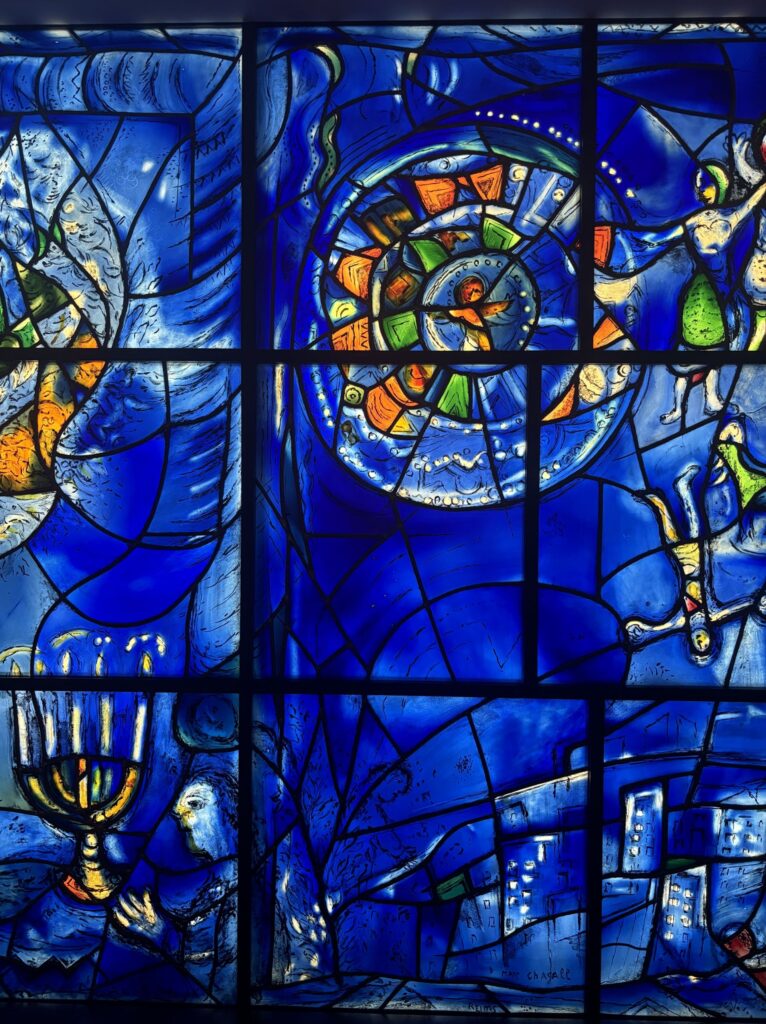
FOTOADICTA/Shutterstock.com
